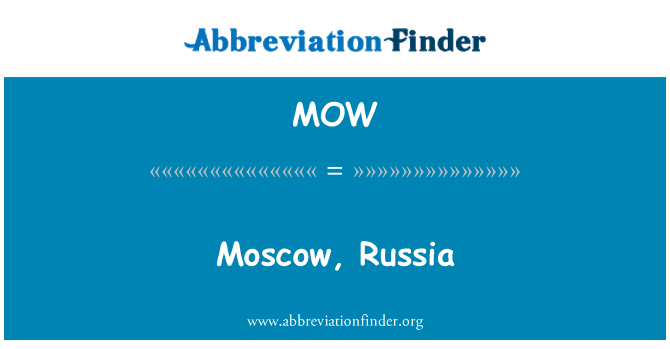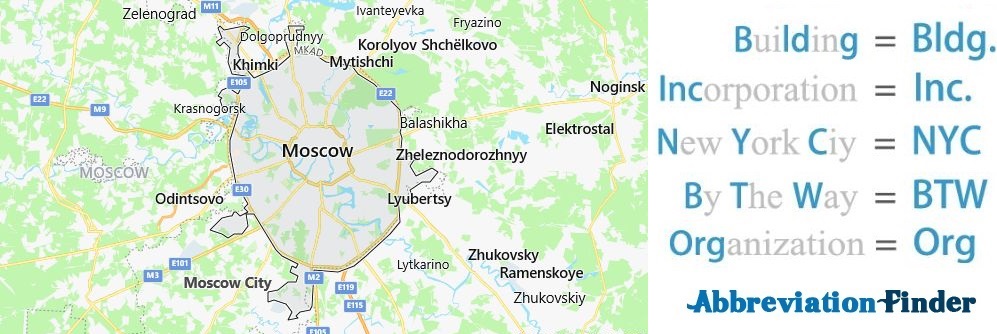Moscow
Many may have prejudices about Moscow as a gray and huge eastern bloc city characterized by a history under communist rule and as a center in the old enemy image of the western world.
But today, long after Gorbachev’s glasnost reformation, Moscow appears very modern.
The areas around the Kremlin and the Red Square are, and always have been, gloriously beautiful and grand, and few other places in the world are the citizens just as eager for the Western lifestyle. When McDonald’s opened its first Russian restaurant in Pushkin Square, the Mosquitoes spent several weeks queuing for several kilometers to get a hamburger. Today, most of Moscow’s good restaurants, shopping centers or bars could as well have been located in Western Europe.
Moscow can be visited at any time, but the inland climate can make the winters bitterly cold. The city of Moscow shows itself from its most hospitable side in the spring and summer. If you are interested in history and culture, Moscow is a treasure chest just waiting to be discovered.
Being a tourist in Moscow is not easy, since most of the information and street signs are written in Cyrillic letters and unscrupulous taxi drivers without a taximeter. But if you take the challenge, you will undoubtedly get many memorable experiences out of a visit to the largest city in Europe.
West of the city center is the Arbat district, named after Moscow’s one and a half kilometer pedestrian zone. Arbat is a pleasant promenade with colorful, low-rise houses, sidewalk cafes, restaurants, street artists and sellers.
At the western end of Arbat, you can’t help but notice the mighty colossal Ministry of Foreign Affairs, one of seven monumental skyscraper buildings built on Stalin’s order in conjunction with the city’s 800th anniversary in 1947.
City Profile
- Abbreviation: MOW
- Country: Russia
Tverskoy
Tverskoy is the area northwest of the city center, and the main vein here, Tverskaya, is Moscow’s leading shopping and nightlife street. This is a wide and bustling boulevard where you will find many museums, galleries and the city’s theater district, including Moscow’s legendary Bolshoi Theater.
It is actually possible to get tickets at very low prices, albeit at the worst seats. Tverskov also houses many of Moscow’s administrative agencies, such as the main police station, the mayor’s office, the State Duma and the City Council building.
Petrovsky
Just north of the city center is Petrovsky, Moscow’s most fashionable shopping district. Here, the new Russians buy their Dior and Cartier products.
Here in Petrovsky is also Moscow’s Museum of Modern Art, and the magnificent St.Peter Monastery from the 1380s is also well worth a visit, with its magnificent loop domes. Free admission every day from 0800 to 2000.
Kitai-Gorod
East of the Red Square and north of the Moscow River, the Kitai-Gorod district, the oldest district outside the city center, begins, which you can still feel in the narrow and lively small streets.
Here in Kitai-Gorod, Moscow’s visitors were merchants and trade travelers, and the name means straight-translated China city. Here are several old and beautiful churches, monasteries and synagogues, and you can still see parts of the original city walls that surround the downtown areas.
Lubyanka
Between Petrovsky and Kitay Gorod lies the district of Lubyanka, which is best known for one of the most terrifying buildings during the Soviet era, the Lubyanka Prison. This was the last stop before Siberia or death, for thousands of people under Stalin’s cleansing, (including the Swedish diplomat Raoul Wallenberg), and was also the headquarters of the KGB.
Today, the security police FSB is located in the premises. Nearby is both the City History Museum and the huge Polytechnic Museum, which deals with Russian science and technology.
Zamoskvorechie
On the south side of the Moscow River lies the district of Zamoskvorechie, where you will find attractions such as the Tretyakov Galleries, the Donskoy Monastery, the atmospheric Sculpture Park with its demolished Soviet monuments and the large and famous Gorky Park, or the Culture Park as it is officially referred to these days.
The cultural park houses a small and tired amusement park where you can also see the authentic space ferry Buran which had its first and last trip in 1988.
In Zamoskvorechie is also the huge Paveletsky train station where you can take the train to Domodedovo airport. Outside stands the old locomotive that transported the late Lenin to Moscow in 1924.
General about Moscow
It may seem strange to recommend a metro network in a tourist guide, but don’t miss Moscow’s beautiful, efficient and comprehensive metro system. Many of the city’s 176 stations are incredibly beautifully decorated, with enough statues, golden chandeliers, murals, mosaics and marble tiles to give you the impression that you are in an opera house foyer rather than a subway station.
But the subway is also very efficient, with 12 lines covering a huge area, and it goes far into the night. The ticket costs almost nothing and must be purchased and stamped first. You rarely have to wait more than two minutes for your course to arrive. Remember that all signage on the subway is in Cyrillic letters, so it’s a good idea to keep an eye on and maybe count stations so you know when you’re off. Here you can easily plan your transport in Moscow.
The Russian folk line can be somewhat difficult to get hold of. One can easily get the impression that Russians are rude, grumpy, unassuming and totally without service attitude. Don’t expect to have a smile and eye contact when you enter a Russian store or hotel. Courtesy phrases such as “Hello”, “Thank you”, “Please” or “Have it” are also rare diets.
Also at several of the Russian offices in Oslo, the Travel Plan has experienced being completely ignored by all employees for several minutes even though we were the only customer in the room. Nevertheless, it must be said that the level of service in Russia has increased many notches since our visit in the 90s, especially in the service industry.
If you are first able to talk to a mosquito, you will often be overwhelmed by interested questions and hospitality. And don’t forget that the stone face you see on the street in the morning is probably laughable and open in the pub that night.
Be prepared that outside of the better tourist hotels, few Russians speak English, so asking someone for help can be problematic. Neither the will to understand nor to help is intrusively present. Most of the information is also in Russian, with Cyrillic letters. This includes street signs and the signs at the metro stations. A street map and a dictionary with the Cyrillic alphabet will be of great use if you plan to explore the city on your own. Always keep a copy of the name page and visa in your passport, as you can be checked by the police. You are also obliged to always carry a valid ID.
You should make sure you have comprehensive travel insurance when traveling to Moscow, as the National Insurance Scheme does not cover health services for tourist stays in Russia. The standard of health care in Russia is also not what you are most likely used to. Avoid drinking tap water.
Moscow has also developed a very active nightlife, and especially in the areas around Tverskaya and Red Square, many and exclusive clubs, bars and discos have emerged. Here, Moscow’s much-talked-about billionaire billionaires are quite visible, and you should consider the outfit and the economy before queuing outside one of the clubs with parked Jaguars and doormen with Armanidress and machine gun.
Moscow has gained a somewhat undeserved reputation as a dangerous city with a lot of street crime. But as in any major city, there are some areas you don’t stroll around on your own. If you stay away from crowded and dark alleyways, it will take a lot for something to happen. Of course, in the crowds around the tourist attractions and on the subway, there are pickpockets and purse seers like everywhere else. The much-talked-about Russian mafia also has no interest in creating problems for you as a tourist, unless you have intentions of taking over control of prostitution and gambling in the city.
The worst villains you are likely to encounter are Russia’s notorious taxi drivers, who apparently demand as much as they can. Do not get into a taxi without clarifying and accepting the price in advance, otherwise you may be charged for hundreds of dollars by an avid driver. Few taxis have or use a taximeter, and absolutely none of the drivers have a change of money, so be sure to agree on an amount that you have available. It will usually be cheaper and safer to ask the hotel or restaurant to call for a taxi for you than to stop one yourself on the street.
Facts about Moscow
Moscow is Russia’s capital and largest city. Moscow is also the city of the political elite, and it gives rise to an international environment and flashy buildings and places.
| Population | About. 12 million officially residents. Probably millions of illegal immigrants and guest workers as well. |
| Official language | Russian. |
| Control Form | Republic |
| Religion | Russian Orthodox (about 72%) |
| Time Difference | Moscow is two hours ahead of Norway. |
| Currency | Russian rubles. As of July 2008, NOK 10 equals approximately 45 rubles, or 100 rubles equals approximately NOK 22. ATMs are everywhere in major cities and most major shops, hotels and restaurants take credit cards. Please note that although prices are often quoted in dollars, rubles are the only common currency. |
| Tips on restaurants | 10% is normal if you are satisfied with the service. Some restaurants automatically add this to the bill, so check it before you double-tip. |
| Embassy | The Royal Norwegian Embassy is located in Ulitsa Povarskaja 7, not far from the Arbatskaya metro station, on the light blue line. Phone +7 495 933 14 10 |
| Tourist | There is probably some sort of tourist office at Gostiny Dvor, Ulitsa Ilyicha, but they can’t really help you with anything. We found one employee who barely understood English, inside his office with a closed door. |
| Telephone | +7 (to Russia) |
| Emergency | Fire 01. Police 02. Ambulance / Accidents 03. |
| Electricity | 220/240 volts, the same two-pin contact system as in Norway. |
| Holidays and Holidays | January 7 (Russian Orthodox Christmas, February 23, March 8, May 1, May 9, June 12 (National Day) and November 14). |
| Visa | Mandatory visa requirement for Norwegian citizens. Must be arranged in advance from the Russian Embassy. Invitation from tourist agency, hotel, business partner etc. is also required and confirmed hotel for the entire stay. |
| Vaccinations | No vaccines are required. |
| Water | Do not drink from the tap. |
| Nearest major cities | Vladimir, Sergiev Posad, Tula. |
| Safety | Moscow has gained a somewhat undeserved reputation as a dangerous city with a lot of street crime. But as in any major city, there are some areas you don’t stroll around on your own, and if you stick to illuminated main streets, it will take a lot for something to happen.Of course, in the crowds around the tourist attractions and on the subway, there are pickpockets and purse seers everywhere else. |

List of Moscow Acronyms
The most commonly used abbreviations about Moscow is MOW which stands for Moscow. In the following table, you can see all acronyms related to Moscow, including abbreviations for airport, city, school, port, government, and etc.


